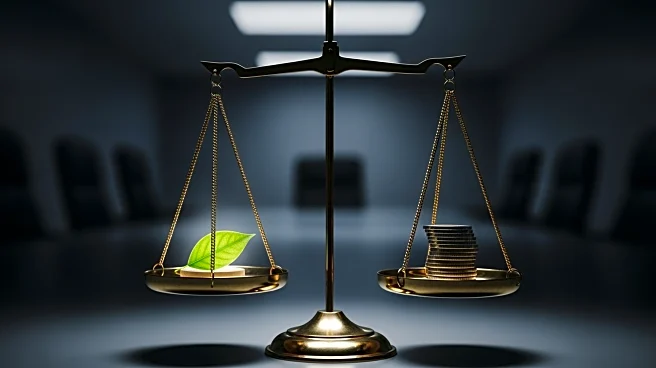What's Happening?
U.S. Senator Tommy Tuberville has expressed intentions to sue over a new provision in the Senate budget deal that allows senators to sue if their phone records are subpoenaed without their knowledge. This provision, retroactive in nature, was included
following the Justice Department's lawful subpoena of phone records during the January 6 investigation. Tuberville has threatened to 'sue the hell' out of Biden officials, although the law actually empowers him to sue the United States, potentially making taxpayers liable for any settlements. This move has sparked controversy and criticism, highlighting the tension between legislative actions and judicial processes.
Why It's Important?
The situation underscores the complexities and potential conflicts of interest in legislative processes, particularly when lawmakers create provisions that benefit themselves. Tuberville's threat to sue highlights the broader issue of accountability and transparency in government actions. The provision's retroactive nature raises ethical questions about fairness and the use of legislative power for personal or political gain. This development could have implications for public trust in government and the perceived integrity of legislative actions.
Beyond the Headlines
The provision allowing senators to sue over subpoenaed records raises concerns about the balance of power between the legislative and judicial branches. It also highlights the potential for lawmakers to shield themselves from accountability, contrasting with the lack of similar protections for ordinary citizens. This situation may prompt discussions about the need for reforms to ensure equitable treatment under the law and prevent the misuse of legislative power for personal benefit.















